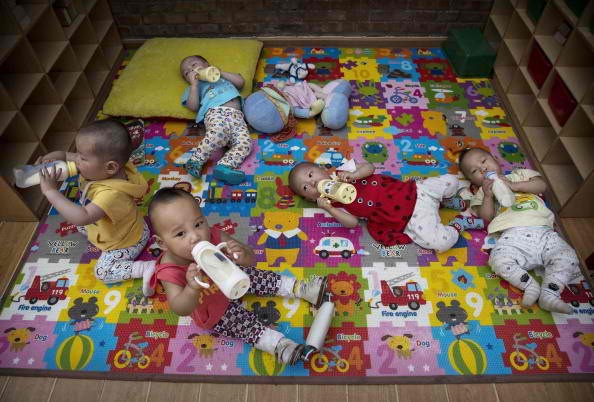"We must train more pediatricians."
This is what Chen Anmin, former president of Tongji Hospital, a local medical facility, said about the country's lack of pediatric capacity.
Chen noted that currently, "China has a shortagae of 200,000 pediatricians," as cited in a Women of China article.
At Wuhan Children's Hospital, another local facility, an average of 10 pediatricians resign annually, with stress for work as one of their primary reasons.
"We don't have enough pediatricians. Seeing the long queues waiting, we are also very anxious," said Chen Zhanfeng, director of the hospital's medical department.
According to a survey conducted by China's health authority across seven provinces, a pediatrician's workload is 1.68 times tougher than that of a regular doctor.
Back in 1999, a number of Chinese academic institutions removed the major of pediatrics. Additionally, some hospitals have scrapped their respective pediatric units. The said moves come amid a decline in the country's birth rates.
Chen recounted that although the Tongji Medical College of Huazhong University of Science and Technology "boasted the nation's best pediatrician major," it had to remove the subject as graduates find it difficult to find employment, the article said.
Nonetheless, Chen Zhanfeng pointed out that it will take 10 years to train a qualified pediatrician.
Meanwhile, a boom of second children is predicted to peak in the next three years.
Recently, the government has ended its decades-long one-child policy and passed a new one allowing couples to have a second child.
The director urged local governments and other related agencies to initiate beneficial policies to ease the perennial problem.
Jiao Yahui, deputy-director of the Medical Policy and Administration Bureau of the National Health and Family Planning Commission (NHFPC), has also put the country's pediatrician shortage issue in a global context.
"China had 0.53 pediatricians for every 1,000 children under 14 in 2014, a figure much lower than other countries around the world," he explained. "The country has over 90 children's hospitals and only just over half of the top comprehensive hospitals have pediatric units."
"For a country with 200 million children, our medical resources are indeed insufficient," he added.
Jiao also said that the NHFPC is adamant in "increasing its input into children's hospitals," the report noted.
As part of the government's initiatives, it has included in its 12th Five-Year Plan (2011-2015) the enhancement of prefecture-level children's hospitals and county-level pediatric departments.
China has intensified its efforts of equipping these medical hubs with diagnostics facilities and of making them tidier.
Simultaneously, China has been granting more subsidies to train more pediatricians.
For the hospitals' part, respective administrations have also improved patients' medical experience. For instance, bookings for appointments can now be made online, significantly reducing registration and waiting period.
Furthermore, the NHFPC is working intensely to raise awareness on common children's diseases and their prevention and treatment.



























